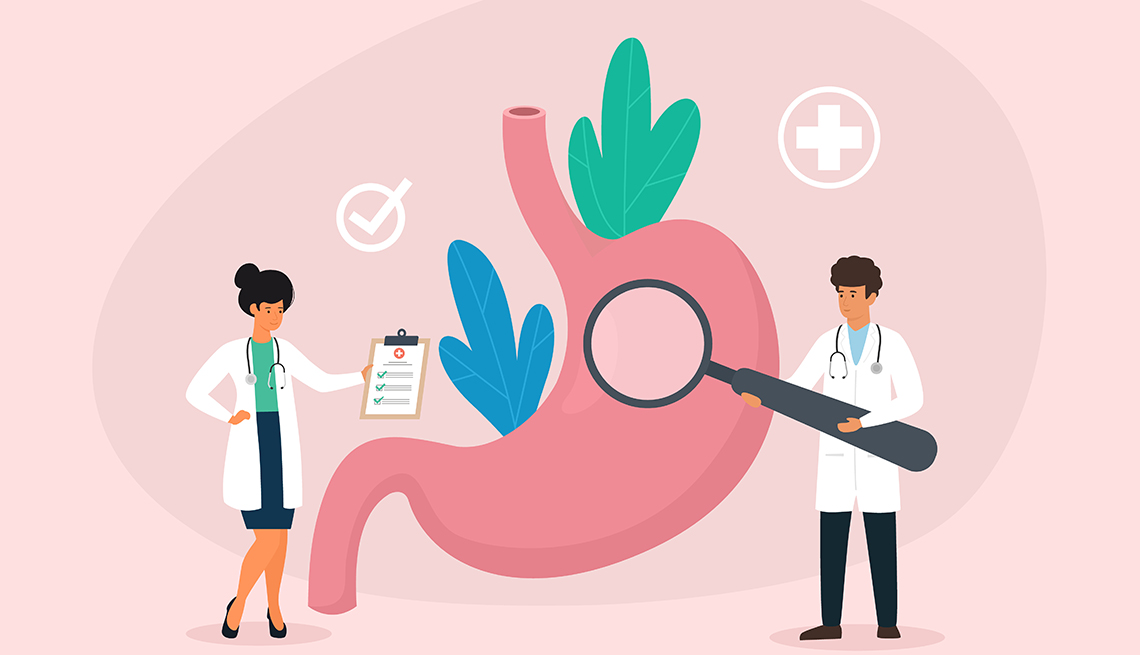AARP Hearing Center
Did you know that the acid and enzymes in your stomach are so powerful that studies show they can dissolve metal items such as coins and razor blades?
Imagine if those fluids started eating away at your organs.
That’s what happens when you have a peptic ulcer, a painful sore that develops in the lining of your stomach or small intestine.
As many as 1 in 10 people worldwide will have an ulcer, according to a 2022 study published in the journal PLoS One.
Normally, a special mucus membrane keeps digestive fluids away from the surface of your stomach and intestine. Ulcers form when that barrier is damaged or overwhelmed, allowing acid to leak through.
Doctors used to believe that emotional stress alone could cause ulcers, but they now know that’s not the case. Though stress is associated with an increased risk of ulcers, experts say most are caused by one of two triggers:
- Helicobacter pylori (H. pylori) bacteria: Thirty to 40 percent of people in the United States have this bacterium living in their stomach, often without any obvious symptoms. H. pylori can break down the protective lining in the stomach. Scientists don’t know exactly what percentage of stomach ulcers are linked to H. pylori, but the Cleveland Clinic estimates 40 percent.
- Overuse of certain pain medications: The use of nonsteroidal anti-inflammatory drugs (NSAIDs) at high doses or over a prolonged period increases your risk of ulcers. The medications can irritate and thin your stomach lining and interfere with your body’s ability to repair damage to the area. Researchers estimate half of stomach ulcers are caused by NSAID overuse, according to the Cleveland Clinic. Common NSAIDs include aspirin, ibuprofen (Motrin, Advil), naproxen (Aleve), ketorolac (Toradol) and oxaprozin (Daypro).
Ulcer causes often overlap, experts say. Being infected with the bacteria makes it much more likely that an NSAID will degrade your stomach lining.
Older adults at higher risk
Anyone can get an ulcer, but your risk increases with age, experts say.
That’s partly because H. pylori infections are more common in older adults, says gastroenterologist Nimish Vakil, a professor at the University of Wisconsin School of Medicine and Public Health.
Research shows that relative to other birth cohorts, people born in the 1940s and 1950s have a higher prevalence of H. pylori, according to a Japanese study. Older people are more likely to use NSAIDs, whether it’s daily low-dose aspirin for a heart condition or ibuprofen to relieve pain from arthritis, says Ekta Gupta, a gastroenterologist and assistant professor at Johns Hopkins Medicine.
Peptic ulcer symptoms
Gupta says early ulcer symptoms can be subtle, “so it’s important to be mindful and aware of the signs.”
If left untreated, ulcers can cause complications including a hole in the stomach lining, a blockage in your intestines, stomach cancer or life-threatening internal bleeding.









































































